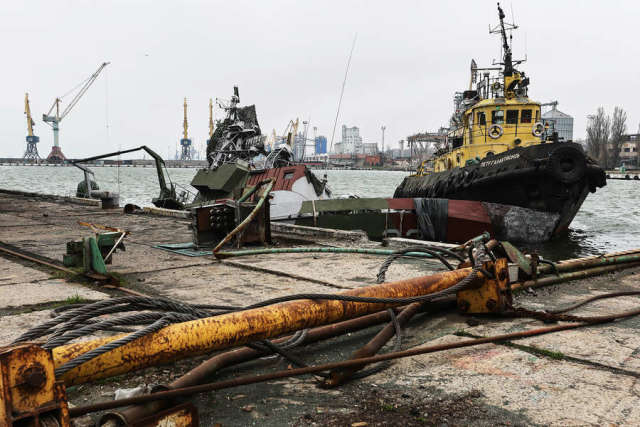The Pentagon reported that the US Navy will not conduct operations in the Black Sea
The US Navy refused to participate in operations in the Black Sea. At the same time, Turkey had previously closed the Bosphorus Strait for the passage of warships, which deprived Washington of the opportunity to conduct any maneuvers in the water area. What is the reason for this ban and what it will lead to - in the material of "Gazeta.Ru».
The US Navy does not plan to take part in operations in the Black Sea. This was stated by Pentagon spokesman John Kirby. Thus, he answered a CNN journalist's question about whether the United States is making "efforts to break the blockade of Mariupol by sea."
A CNN correspondent suggested that the Pentagon's decision may be due, among other things, to the fact that Ankara has closed the Bosphorus Strait to warships.
Earlier, Turkish Defense Minister Hulusi Akar said that the passage of warships of any countries into the Black Sea is excluded while the Russian special operation in Ukraine lasts. According to him, Turkey is firmly committed to the implementation of the 1936 Montreux Convention on the prevention of warships in the Black Sea in the event of hostilities in the region. The ban applies to both the entry of ships into the water area and the exit from it.
To what extent such a ban will affect the Ukrainian Navy, which is mostly represented by patrol boats and auxiliary vessels, it is not entirely clear - this is the coastal fleet.
"Turkey played into Russia's hands with such a decision with the closure of the Black Sea for all warships," he told the newspaper.Ru" military expert, captain of the 1st rank of the reserve Vasily Dandykin. - The fleet forces in the region are quite sufficient to ensure the security of the country, and the absence of US or UK ships will not distract from the need for their escort, because every visit of an American or British destroyer required close attention to them. There are no threats to the Black Sea Fleet from Turkey, Romania and Bulgaria."
The expert recalled that back in March, a consolidated detachment of six ships from the Northern and Baltic Fleets arrived in Sevastopol with equipment and marines on board. "For us, the strengthening has already happened, the ban will not hurt us," Dandykin added.
Moscow did not challenge Ankara's decision. In NATO, on the contrary, Turkey's position was outraged. The alliance command asked Turkey to limit the passage only for Russian ships, but to make an exception for NATO. This was reported by The Times newspaper, citing sources in the British Ministry of Defense.
"The closure of the Bosphorus Strait will also not weaken the Russian naval grouping in the Mediterranean Sea," said Maxim Begunov, a member of the Board of Military Experts. - It includes ships of all formations of the Russian Navy, not just the Black Sea Fleet, so the rotation of forces and means there will continue in the same mode. It is possible that the ships of the Black Sea Fleet will have to stay a little longer, but they also have the opportunity to replenish ammunition and food in the Syrian port of Tartus. The crews will most likely be changed there."
According to Begunov, the Syrian naval transit will not be disrupted either, although it will take longer.
Russian weapons and military equipment enter Syria by several routes. The main one is sea transit through the Black Sea, through the Bosphorus and Dardanelles Straits and further through the Mediterranean Sea and the port of Tartus. The longer route is the northern one, from the Barents Sea (Murmansk, Severomorsk), bypassing Norway, Great Britain, the Atlantic Ocean, the Strait of Gibraltar and further through the Mediterranean Sea.
"Thus, Russia did not suffer in any meaningful way from this decision of Turkey, but the positions of the United States and NATO were significantly weakened.
- summed up the runners.
Victor Sokirko

